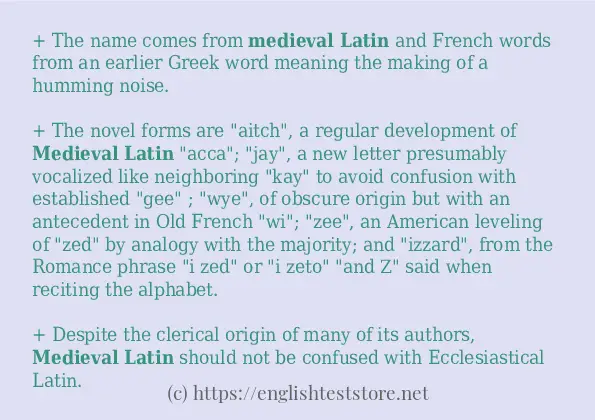How to use in-sentence of “Medieval latin”:
+ The name comes from medieval Latin and French words from an earlier Greek word meaning the making of a humming noise.
+ The novel forms are “aitch”, a regular development of Medieval Latin “acca”; “jay”, a new letter presumably vocalized like neighboring “kay” to avoid confusion with established “gee” ; “wye”, of obscure origin but with an antecedent in Old French “wi”; “zee”, an American leveling of “zed” by analogy with the majority; and “izzard”, from the Romance phrase “i zed” or “i zeto” “and Z” said when reciting the alphabet.
+ Despite the clerical origin of many of its authors, Medieval Latin should not be confused with Ecclesiastical Latin.
+ This is a Medieval Latin phrase dating to at least 1246.
+ The name Asnières was first mentionned in 1158 as “Asnerias”, from Medieval Latin “asinaria”, meaning “donkey farm”.
+ The name of the parish comes from the medieval Latin “Perranus in Sabulo” meaning Piran in the sand.
+ The word cipher in French is “cifre” and in Medieval Latin “cifra”, from the Arabic “sifr”, meaning ‘zero’.
+ There is no real consensus on the exact tr that Late Latin ends and Medieval Latin begins.

